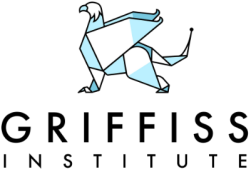Public Affairs 88th Air Base Wing, Wright-Patterson Air Force Base
WRIGHT-PATTERSON AIR FORCE BASE, Ohio — Through sponsored programs in key locations, the Air Force Research Laboratory (AFRL) is working to bolster the industrial base, create jobs and foster the next generation science and technology workforce by thrusting more of its technology into the mainstream.
Student and business teams being assembled near AFRL locations are finding new applications for AFRL technology, forming companies and working to secure funding for ventures built around AFRL’s intellectual property.
The push started about two years ago when AFRL officials in Rome, New York – in partnership with the Griffiss Institute – opened the Commercialization Academy.
Originally, the idea was to tap college students from a variety of backgrounds to analyze selected AFRL technologies and determine the viability of taking them to market. Scientists and engineers from the lab worked with student teams through the process and, when it made sense, developed a business plan to attract outside funding. Those AFRL researchers could also mentor or have ties to the new business.
A similar model was launched a year later in Dayton, Ohio in partnership with the Wright Brothers Institute and hosted by The Entrepreneurs Center. This Technology Acceleration Program, also known as TAP, was a natural fit because AFRL headquarters and several of its technical directorates are located at nearby Wright-Patterson Air Force Base.
With some adjustments, both concepts appear to be gaining momentum.
Griffiss is now using Wasabi Ventures to run the Commercialization Academy in Rome, near AFRL’s Information Directorate, and has shifted from student teams toward an accelerator-based approach.
A dozen technology transfer teams invited to the academy at the start of this year have been whittled down to eight. The remaining teams will soon pitch their ideas to a panel of judges and a live audience for cash prizes.
Teams invited to the academy are formed by businesspeople who fit one of two categories: They expect an AFRL-developed technology can be combined with their own invention to make it better, or they envision a product that can be built around intellectual property licensed from AFRL.
In Dayton, more than 40 students from colleges and universities across the region evaluated 20 different AFRL technologies. In just nine months, two start-ups have formed.
These learning opportunities also prompted both the University of Dayton and Wright State University to launch formal entrepreneurial courses in which students assess technologies and create business plans for potential business applications. Student teams will soon pitch to an audience of angel and venture investors for potential funding.
Behind the win-win scenario
AFRL manages a multi-billion dollar science and technology portfolio to address specific needs, but also is required to meet technology transfer benchmarks.
The traditional approach to tech transfer – wait for researchers to apply for a patent and advertise its availability for licensing – was passive and didn’t yield much success. That left a trail of untapped potential as well as frustrated researchers.
The Commercialization Academy and TAP are newer, more aggressive models for getting Air Force intellectual property into the market. Spinning technologies of the lab helps build the Department of Defense industrial base and creates jobs as businesses apply the research to new commercial applications. Programs like these also help demystify military bases, such as Wright-Patterson, so officials can better connect with small businesses and the business community at large.
“We want lots of companies that we can work with; companies that have lots of innovative ideas,” said William ‘Bill” Harrison, director of small business for AFRL.
This push to get developments out of the lab is likely to accelerate the next consumer product “hit”. For example, GPS started as a military technology and now is part of the daily lives of U.S. citizens and the roots of Lasik corrective eye surgery can be traced directly to the Air Force Small Business Innovation Research Program.
“There are these waves of technology we take advantage of everyday, don’t think anything of it, that started out inside a military or NASA (development) program,” Harrison said.
The impact of AFRL’s support for TAP has even wider implications for STEM – science, technology, engineering and mathematics – education and critical workforce development issues. With a quickly aging workforce at AFRL, as many boomers are in a position to retire in the near future, the TAP model provides a golden opportunity to connect with a bright new crop of future scientists and engineers.
“It’s a challenge to attract the best and brightest, because we’re competing with big tech companies, and TAP allows us to show Millennials what AFRL has to offer,” Harrison said.
Eventually, AFRL officials hope to expand the Commercialization Academy and TAP concepts to other locations across country.
Original online article found here: http://www.wpafb.af.mil/news/story.asp?id=123473943

